Space
Sign up for our newsletter
We summarize the week's scientific breakthroughs every Thursday.
-
 Planetary Science
Planetary ScienceWe spent New Year’s Eve in the Kuiper Belt
Editor in Chief Nancy Shute discusses Science News' coverage of NASA's New Horizons spacecraft's flyby of Ultima Thule.
By Nancy Shute -
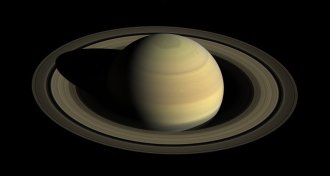 Planetary Science
Planetary ScienceRing ripples reveal how long a day lasts on Saturn
Clues in Saturn’s rings divulge the planet’s rotation rate: 10 hours, 33 minutes, 38 seconds.
-
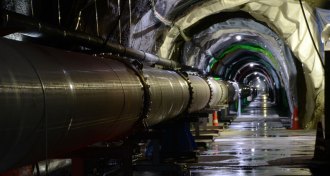 Physics
PhysicsA new gravitational wave detector is almost ready to join the search
Buried deep underground, Japan’s KAGRA detector relies on components cooled to just 20 degrees above absolute zero.
-
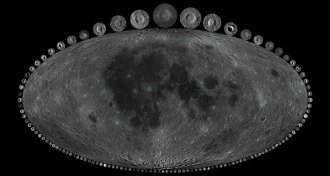 Planetary Science
Planetary ScienceThe moon’s craters suggest Earth hasn’t erased lots of past impacts
A new look at moon craters suggests the Earth and moon suffered more impacts in the last 290 million years, and the Earth retains its biggest scars.
-
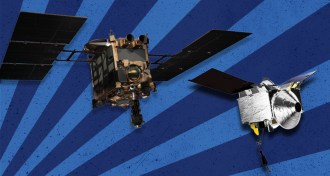 Planetary Science
Planetary ScienceTwo daring spacecraft aim to bring asteroid dust back to Earth
A pair of daredevil spacecraft that aim to bring asteroid dust back to Earth have reached their targets and are scouting for the best sampling spots.
-
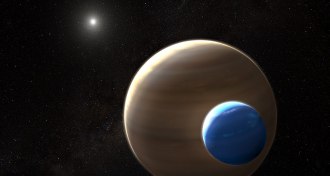 Astronomy
AstronomyThe first suspected exomoon may remain hidden for another decade
The discoverers of the first evidence for a moon orbiting a planet around a distant star are still trying to confirm the object’s existence.
-
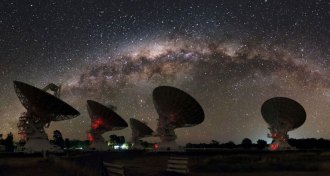 Cosmology
CosmologyA cosmic flare called the ‘Cow’ may reveal a new way that stars die
A burst of light from far away may have been an odd type of exploding star or a white dwarf being eaten by a black hole.
-
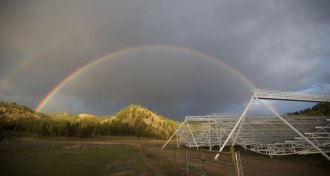 Cosmology
CosmologyA second repeating fast radio burst has been tracked to a distant galaxy
Astronomers have spotted a second repeating fast radio burst, and it looks a lot like the first.
-
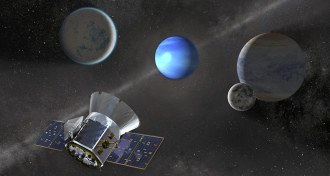 Astronomy
AstronomyLess than a year after launch, TESS is already finding bizarre worlds
The TESS exoplanet hunter has spotted eight confirmed worlds in its first four months, and several of them are really weird.
-
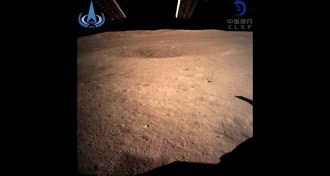 Planetary Science
Planetary ScienceChina just landed the first spacecraft on the moon’s farside
China’s Chang’e-4 lander and rover just became the first spacecraft to land on the farside of the moon.
-
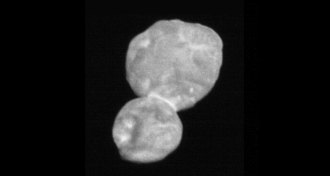 Planetary Science
Planetary ScienceNew Horizons shows Ultima Thule looks like a snowman, or maybe BB-8
Ultima Thule’s snowmanlike shape shows the New Horizons target was probably two space rocks that got stuck together.
-
 Astronomy
AstronomyKnown as the ‘mother of Hubble,’ astronomer Nancy Roman dies at 93
Astronomer Nancy Roman, the “mother of Hubble,” has died.